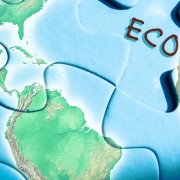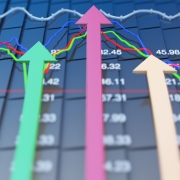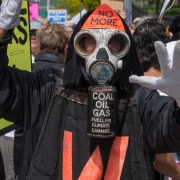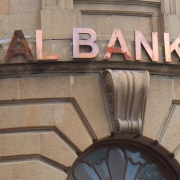An obsession with income inequality would make sense only in a world in which wealth is created independently of the choices and actions of human beings. The same is true for the itch to soak the rich.
If food, clothing, medical care, automobiles, houses, diamond rings, airplane seats, rolls of paper towels, and all other good and services were randomly rained down onto earth by some heavenly being, it would then be true that the more of these goodies that I manage to grab, the fewer are the goodies available for you to grab, and vice versa.
And so if through simple luck or sinister cunning I grab more than you grab, then the resulting inequality in our wealth has no good justification. If the government seizes from me a chunk of “my” stuff and gives it to you, no ethical offense is committed.
Likewise, such wealth redistribution will uncork no economic problems. After all, the government’s forcible transfer of “my” stuff to you won’t affect the amount of wealth that the heavenly being randomly rains down onto the earth.
Of course, in reality the material goods and services that are so abundant in our society are not rained down randomly on us from the heavens. These things must be produced by us. And to produce them requires human creativity, risk-taking, saving and work effort. The more reluctant are individuals to perform on these fronts, the fewer are the goods and services we have to consume.
The truth that wealth creation requires creativity, risk-taking, saving and work effort seems to me to be both indisputable and obvious. And yet many people apparently don’t understand this truth.
How else to explain the enthusiasm that many Americans today have for the soak-the-rich schemes offered up by politicians such as Sens. Bernie Sanders and Elizabeth Warren and Rep. Alexandria Ocasio-Cortez?
I’m not close to being a billionaire, and I have no prospect of ever becoming one. Yet when I hear calls to confiscate large amounts of wealth from billionaires, I shudder. While exceptions no doubt exist, the people who get rich in our economy are overwhelmingly people who have made the rest of us richer.
Jeff Bezos is worth billions only because hundreds of millions of ordinary people found his new retailing method to be a boon. Bill Gates is worth billions only because hundreds of millions of ordinary people found his software to be superior , all things considered, to rival software. Billionaire hedge-fund managers are wealthy overwhelmingly because they took the risks necessary to direct large amounts of financial capital to where they do the most good for the economy.
The prosperity that we all enjoy as a result of the creativity, risk-taking, saving and work effort of these and other super-rich people would not exist if they had lounged around all day watching television, playing pool or reading poetry.
And note this important fact: no super-rich entrepreneur got rich by forcing anyone to buy his or her goods or services. You, me, and every other middle-class and poor person who spends money on what these entrepreneurs offer spends that money voluntarily.
People such as Ocasio-Cortez no doubt feel swells of moral superiority when they thunder in support of confiscatory taxation of the rich. But sensible people understand that such taxation, by dampening the incentives for entrepreneurship, will make us all poorer.
Donald Boudreaux is a professor of economics and Getchell Chair at George Mason University in Fairfax, Va.













